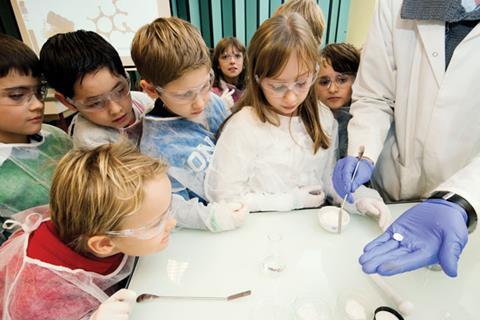Researchers in Australia identify aspects of the learning experience that help to maintain students' interest in science as they progress into secondary school

Primary students' attitudes towards and interest in science tend to decline as they progress into secondary school. To get a deeper understanding of why this trend occurs Marianne Logan and Keith Skamp from Southern Cross University, New South Wales, completed a longitudinal study of a group of 20 students during their last year in primary school and their first year in secondary.1
The researchers used a combination of techniques to gather data, including semi-structured individual interviews with the students, focus group interviews and getting the students to complete an attitude questionnaire. Analysis of the data collected showed that at the end of primary school the students were generally enthusiastic about school science. They showed an interest in practical science particularly when they had the opportunity to design their own experiments, do tests and suggest hypotheses. Many of the students were also keen to use the Internet and other sources to research information for themselves.
Unlike many similar studies this group of students remained positive towards science throughout the first year of their secondary school. The researchers identified three aspects of the secondary science experience that made the learning interesting:
- practical activities, which the students felt made science a 'fun subject';
- coverage of new topics, which enthralled the students; and
- opportunities for the students to question and discuss the science covered, which they felt helped to create a good learning environment.
In addition, feedback from the students showed that the way that the subject was presented helped them to see the relevance of science in terms of everyday life and, for some, suggest future careers.
References
- M. Logan and K. Skamp, Res. Sci. Educ., 2008, 38 (4), 501.






No comments yet